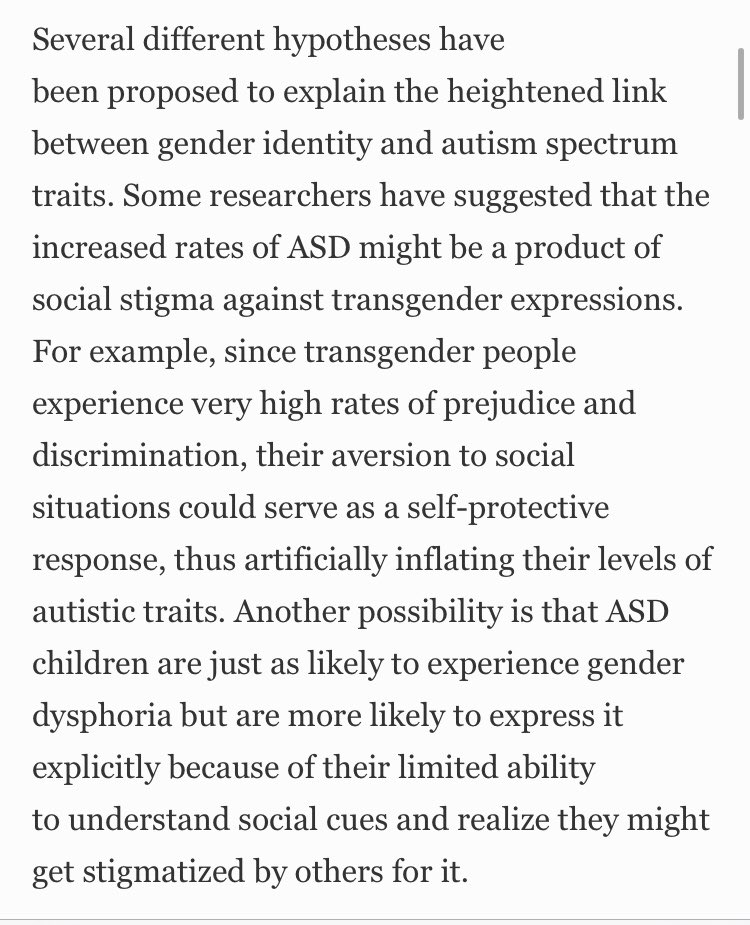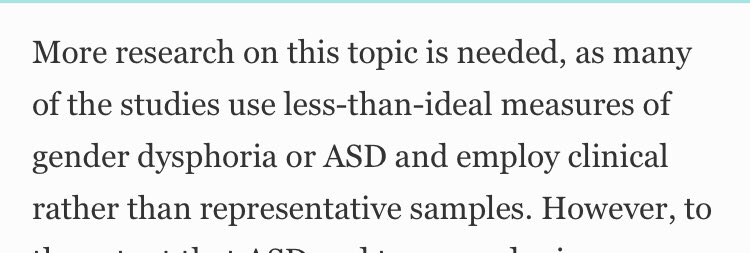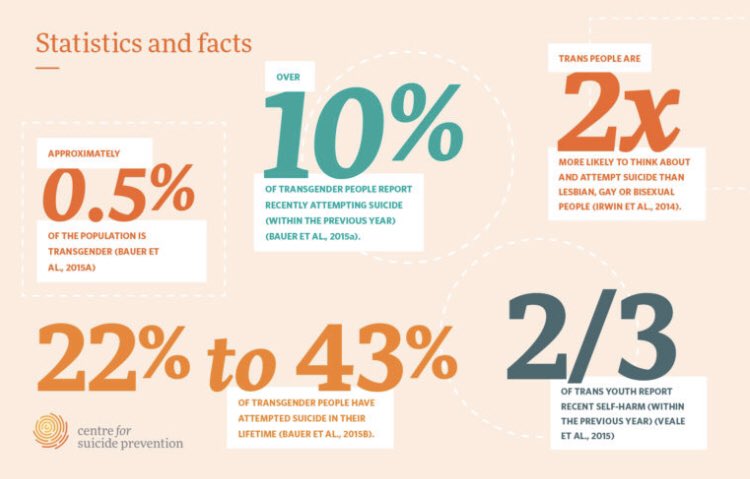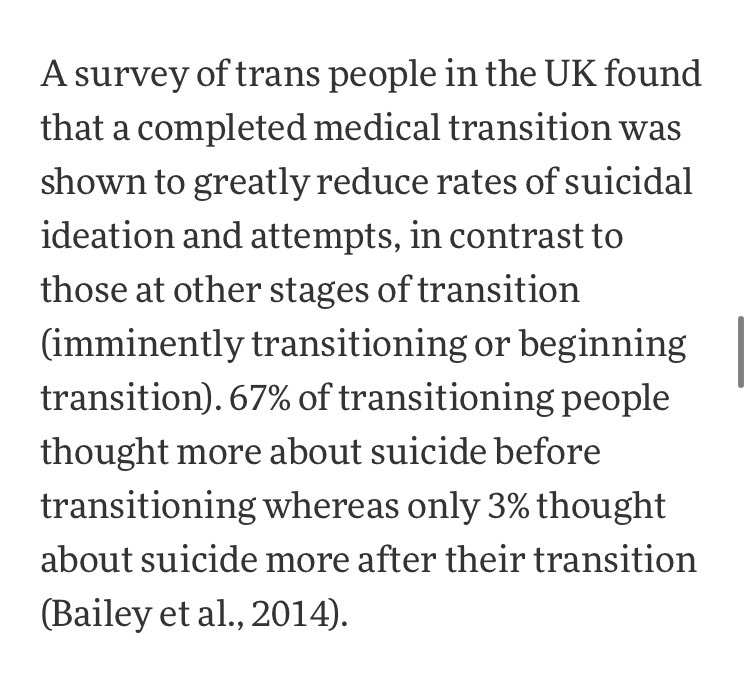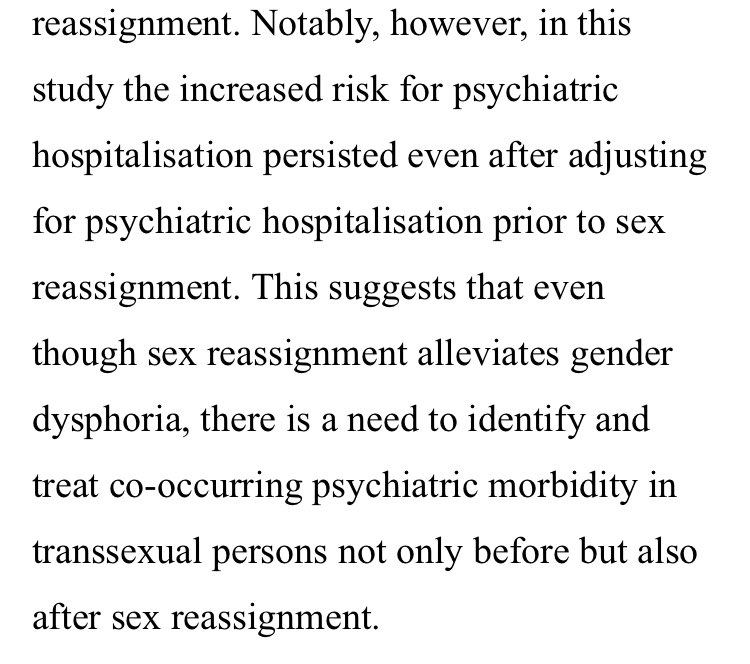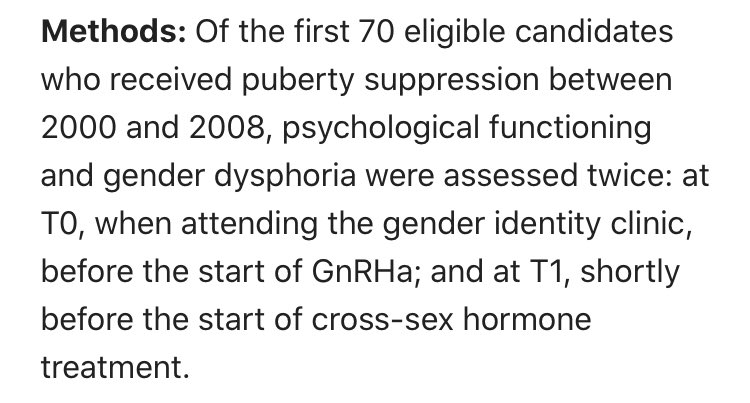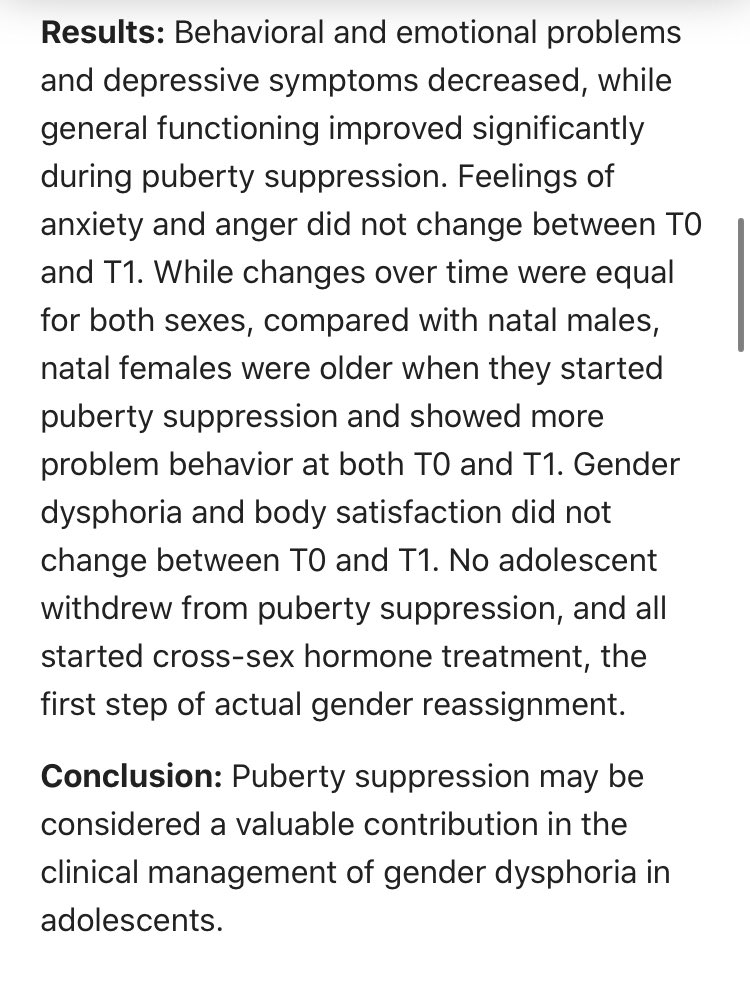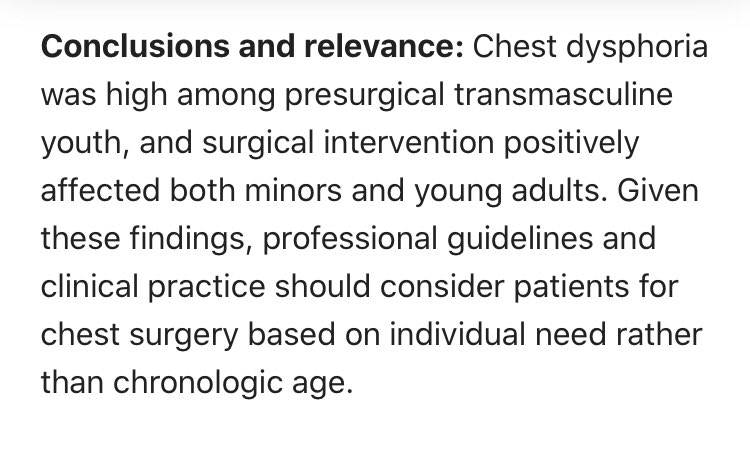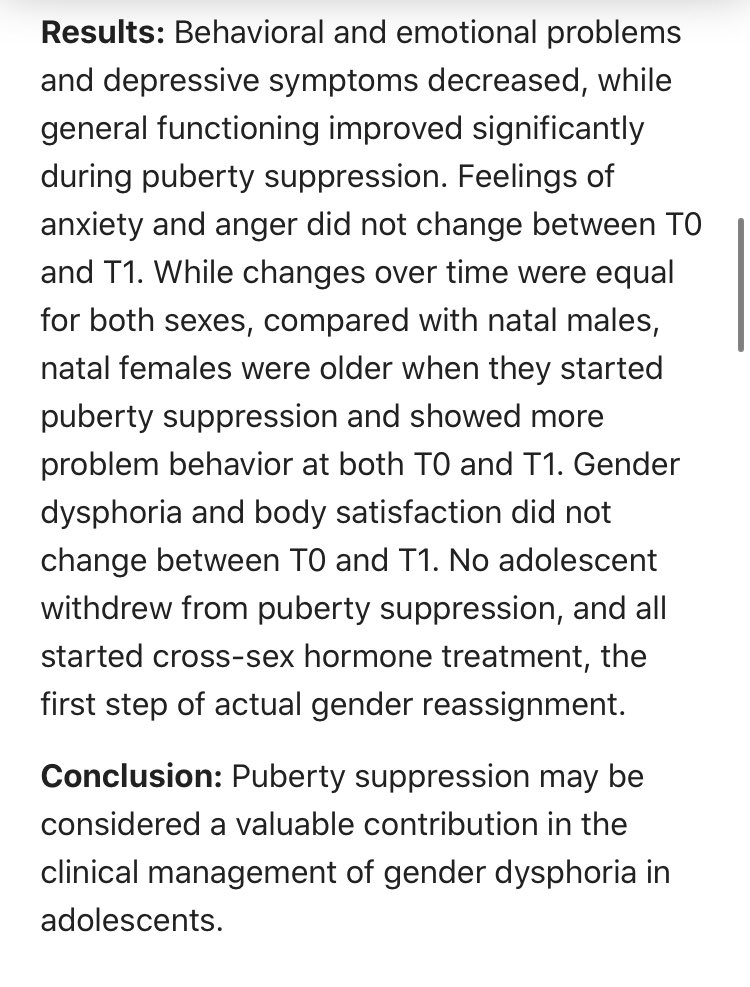Ok, I’m procrastinating finishing my taxes so let’s break down all the ways this infographic is intentionally misleading using the data it cites. This is gonna be a long thread. https://twitter.com/srhelenaburns/status/1282830662823706628">https://twitter.com/srhelenab...
Let’s start with the stat about teens with trans friends. The article they cite is actually a correction which states that the initial study “does not validate the phenomenon” of rapid-onset gender dysphoria the study hypothesized.
As seen in those screencaps, the article points out that the study is insufficient because it only used parental observations which may differ from the observations of teens & young adults themselves, as well as other figures in the teens’ lives (babysitters, teachers, etc.)
So basically the cited source is saying the data is insufficient to make any firm claims at this time.
This is the cited source for the 2000% increase stat. There’s no way reason posted for this claim, and it’s worth noting that these are simply referrals to the Gender Identity Decelopment Service. Not treatment or prescriptions of any kind.
In other words, yup, that’s a big increase in referrals but there’s no way to know why (my assumption would be that it’s increased awareness about gender identity & gender dysphoria leading to more parents & doctors seeking supports, but again the data doesn’t say)
That 98% stat is worded in a very vague way. “Struggle with their sex” is a really broad thing. Furthermore, the article they cite gives a spectrum of 61-98% “will outgrow this condition [gender dysphoria]. So it’s not a simple 98%. The infographic chooses the much higher number.
The study they’re citing to get that 61-98% number that seems to pop up in a lot of anti-trans articles with very little context is behind a $55 paywall so I can’t tell you what it says or anything about their methodology.
On to the autism & trans stat they cite As the Forbes article they cite says, the correlation between autism & trans identity has only been proved to be that: a correlation.
The Forbes article cited says there are multiple hypotheses for this including that trans people may be averse to social situations b/c of discrimination which is “artificially inflating their levels of autistic traits.”
The article notes more research is needed and “many of the studies use less-than-ideal measures of gender dysphoria or ASD.” Note that there is a big trend in the very articles this infographic cites raising the issue of lack of research & poor methodology” to support its claims.
The 20 times more likely to die of suicide stat is compared to the general population. The trans community at large is more likely to die of suicide than the general population regardless of how they’ve transitioned.
However, a survey found that “completed medical transition was shown to greatly reduce rates of suicidal ideation and attempts” and “67% of transitioning people thought more about suicide before transitioning.”
The study the infographic cites is showing that trans people had higher rates of hospitalization for mental illness, suicide, and death overall than non-trans people. That tracks with most data we have that suggests that trans people struggle because of discrimination.
Medical transition is not listed in the article as a causal factor for trans people committing suicide. The article is simply saying transition will not completely get rid of pre-existing mental health conditions and that trans people should have ongoing treatment for those.
Their 100% stat is taken from a study with 70 participants. So yeah all 70 of 70 went on to further medically transition. (Which for me affirms they were confident in their identity but again, it’s a very small sample size!)
I could not find anything about being “permanently sterile” in the article referenced so I’m forced to believe that that’s thrown in just as a scare tactic.
Also the article cited is pro puberty blockers and notes that they decreased behavioral & emotional problems & depressive symptoms and concludes that “puberty suppression may be considered a valuable contribution in the clinical management of gender dysphoria in adolescents.”
The “girls as young as 13” stat is cited from a Women’s Health puff piece about Jazz Jennings who had her first gender confirmation surgery when she was 18. I can not find the age 13 mentioned in the article.
The stat about boys at 17 having genital surgery is cited from an article about chest dysphoria and chest reconstruction in adolescent boys & young men. It concludes that surgical intervention via chest reconstruction “positively affected both minors and young adults”
I can not find anything about 17 year old boys having surgery on their genitals in the article.
It’s true that the long term results of puberty blockers have not been studied yet. And we need that research (some of it is in progress, but long term research takes a long time). But again the research this infographic cites does demonstrate positive short term effects
The 2 sex chromosomes thing is just a weird inclusion because no trans people I know are disputing the existence of X and Y chromosomes. If it’s supposed to address intersex conditions, well you can be intersex and have XXY chromosomes or XY and have androgen insensitivity.
If this is meant to dispute intersex conditions, I’m unsure why as conditions are a matter of medical fact. And also intersex & trans are distinct categories though some individuals may fall into both.
The citation for the final stat about people being given hormones on their first visit to a clinic is about a specific Planned Parenthood saying that patients may be able to be prescribed hormones on their first visit to that specific PP clinic “if you are eligible.”
The way the “stat” is presented makes this look like a widespread norm. But the citation does not support that.
I love trans people & I have a lot of them in my life. I have spent a ton of time talking with them & learning about their experiences. False data & decontextualized information does not help anyone. It doesn’t help us be educated about trans people or love them better.
Finally, I’d like to note that the way the correlation between autism & trans identity is presented by non-affirming parties is troubling at best and ablesist at worst. Someone being autistic does not invalidate their experiences or self-knowledge.

 Read on Twitter
Read on Twitter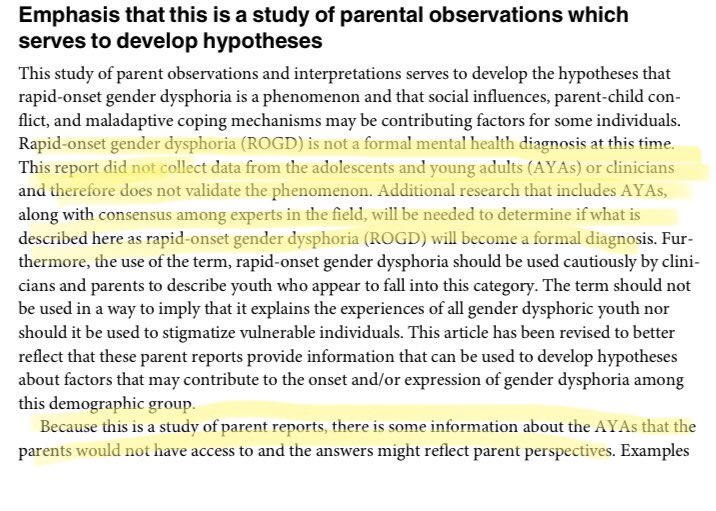
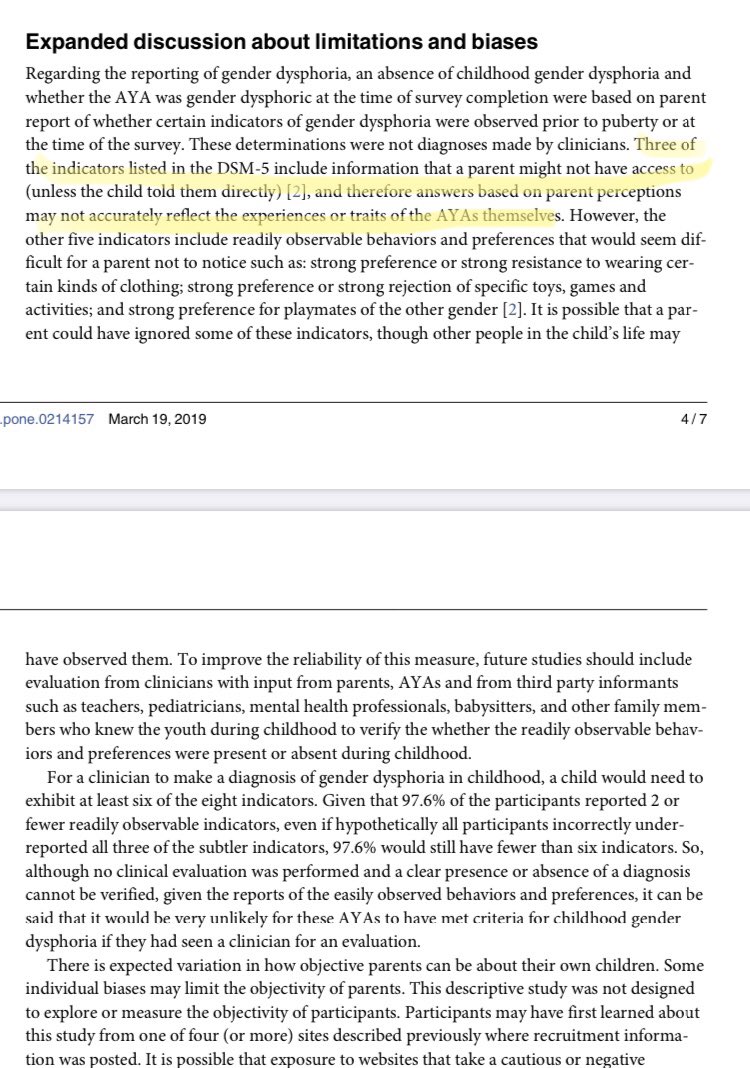

![That 98% stat is worded in a very vague way. “Struggle with their sex” is a really broad thing. Furthermore, the article they cite gives a spectrum of 61-98% “will outgrow this condition [gender dysphoria]. So it’s not a simple 98%. The infographic chooses the much higher number. That 98% stat is worded in a very vague way. “Struggle with their sex” is a really broad thing. Furthermore, the article they cite gives a spectrum of 61-98% “will outgrow this condition [gender dysphoria]. So it’s not a simple 98%. The infographic chooses the much higher number.](https://pbs.twimg.com/media/Ec5UeY1XgAUbKWJ.jpg)
